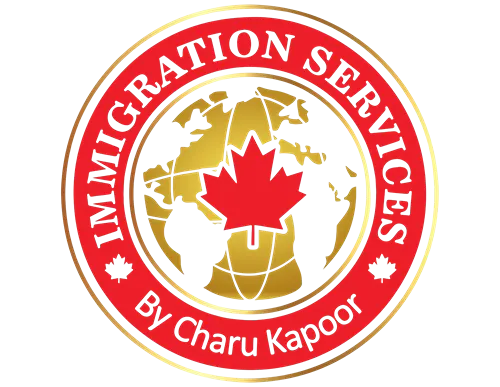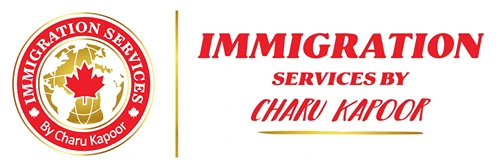Temporary Foreign Worker Program
The Temporary Foreign Worker Program (TFWP) serves as a strategic solution for Canadian employers to address temporary labor shortages by recruiting foreign nationals. This program is designed to bridge the gaps in Canada’s workforce and meet the demands of various industries. The TFWP operates through collaborative efforts between two key government agencies: Immigration, Refugees and Citizenship Canada (IRCC) and Employment and Social Development Canada (ESDC).
By facilitating the temporary employment of foreign nationals, the TFWP provides a vital mechanism for Canadian employers to acquire skilled and unskilled workers for a specified duration. This initiative caters to industries and sectors where there is a recognized deficiency in the local labor market. Through its joint coordination between IRCC and ESDC, the program aims to strike a balance between addressing immediate workforce needs while ensuring that the rights and interests of both foreign workers and Canadian citizens are upheld.


Discover your Canadian
Immigration Options
What is Temporary Foreign Worker Program?
Canada is renowned as a sought-after destination for both tourists and professionals. This popularity draws a significant number of visitors and job seekers. To cater to these diverse needs, the Canadian Government has established distinct categories of visas for visitors and workers.
Among the various work visas available, the Temporary Foreign Worker Program (TFWP) stands out. This program is tailored to individuals seeking temporary employment opportunities in Canada, making it an ideal choice for those looking for short-term work experiences.
The Temporary Foreign Worker Program functions as a specialized Canada work visa initiative introduced by the Canadian Government to facilitate opportunities for foreign workers seeking brief employment stints in the country. Under this program, individuals are granted the chance to work in Canada for a span of up to 6 months, with the potential for extensions.
Throughout their authorized duration, foreign workers under the TFWP are confined to working for a single employer. They are granted a dedicated work permit and visa, enabling them to reside in the specific region of Canada where their employment is located. These workers are also mandated to adhere to the laws and regulations of Canada during their stay. As the expiration date of the work permit and visa draws near, individuals have the option to apply for an extension of their work permit, enabling them to continue their employment journey within Canada. Should an extension not be pursued, departing the country and returning to their home nation becomes necessary.
The TFWP serves as a crucial avenue for Canadian employers to secure the necessary foreign talent they require while also ensuring the rights and safeguards of these foreign workers in their Canadian employment. Within the framework of the TFWP, various streams are available through which employers can recruit temporary foreign workers, encompassing:
- High-Wage Workers
- Low-Wage Workers
- Global Talent Stream
- Foreign Agricultural Workers
- In-Home Caregivers
- Foreign Academics
Labour Market Impact Assessments (LMIA)
A Labour Market Impact Assessment (LMIA) is an official document issued by Employment and Social Development Canada (ESDC) that evaluates the potential impact of hiring a foreign worker on the Canadian labor market. A positive LMIA signifies that no qualified Canadian citizen or permanent resident is available to fill the particular position, thereby granting an employer the authorization to hire a foreign national.
Conversely, a negative LMIA implies that the job opportunity should ideally be filled by a Canadian citizen or permanent resident. For a comprehensive understanding of Labour Market Impact Assessments, encompassing their prerequisites and the procedures for application, we encourage you to delve into further details regarding this essential process.
A fundamental feature of the TFWP is the imperative for a Labor Market Impact Assessment (LMIA). This assessment is a prerequisite for employers aiming to employ foreign nationals under the TFWP. The LMIA underscores the need for employers to demonstrate that they have exhausted efforts to hire Canadian citizens or permanent residents for the role in question. Only upon obtaining a positive LMIA can an employer proceed to formally hire a foreign national. Subsequently, the foreign national can apply for a Canadian work permit or explore the pathway to Canadian permanent residence.
However, it is worth noting that certain temporary worker avenues exist that circumvent the LMIA requirement. These avenues fall under the purview of the International Mobility Program, which is specifically designed to facilitate LMIA-exempt work permit applications. This approach acknowledges the varying needs of employers and the dynamic nature of the labor market, allowing them to access international talent without going through the LMIA process.
How to Apply for the Work Visa and Permit?
Once you’ve obtained the Labour Market Impact Assessment (LMIA), you can proceed to initiate the process of applying for a work visa and permit. This involves submitting your application to the Canadian Consulate, either through their online portal or by visiting the Consulate office in your home country.
Throughout this application, you will need to provide several supporting documents, which might include:
- Valid Passport: Your passport should have a validity of more than 6 months beyond your intended entry date into Canada.
- Photocopies of Passport: Include photocopies of your passport along with all its pages.
- Passport Photos: Two passport-sized photos adhering to the prescribed Photo Requirements.
- Employment Offer: A verified job offer from your prospective employer in Canada.
- Proof of Immigration Status: If your current residence differs from your country of citizenship, provide proof of your present immigration status.
- Police Record Certificates: Relevant police clearance certificates to ensure your eligibility.
- Resume or CV: Your comprehensive resume or curriculum vitae highlighting your professional background and experience.
- Educational Credentials: Copies of your education diplomas and certificates to demonstrate your qualifications.
- Marriage Certificate: If applicable, a copy of your marriage certificate.
- Children’s Birth Certificates: If you have children, include copies of their birth certificates.
- Quebec-Specific Document: If your work will be based in Quebec, you’ll need a Certificate d’acceptation du Quebec (CAQ).
- Additional Consulate Requirements: Include any other documents stipulated by the Consulate of Canada in your application.
These documents collectively form a comprehensive package that supports your work visa and permit application. Once submitted, the Canadian Consulate will review your application to ensure that all requirements are met, facilitating a smooth and efficient processing of your request to work in Canada.
International Mobility Program
The International Mobility Program (IMP) provides Canadian employers with the opportunity to hire temporary foreign workers without the necessity of obtaining a Labour Market Impact Assessment (LMIA). While the majority of employers seeking to hire foreign workers typically require an LMIA, specific circumstances warrant LMIA-exemptions. These exemptions are determined based on the following criteria:
- Broader economic, cultural, or other competitive advantages for Canada.
- Reciprocal benefits that Canadians and permanent residents enjoy.
To engage in hiring a foreign worker through the IMP, a Canadian employer must follow a three-step process:
- Confirm that the position or worker qualifies for an LMIA-exemption.
- Pay the employer compliance fee of $230 CAD.
- Submit the official job offer via the IMP’s Employer Portal.
After successfully completing these three steps, the foreign national becomes eligible to apply for their own work permit. LMIA-exempt workers meeting the criteria of NOC Skill Level A or 0, and applying from outside of Canada, might qualify for expedited work permit processing through the Global Skills Strategy.
High-Wage Workers
When an employer intends to hire a temporary foreign worker with a wage at or above the median hourly wage of their respective province or territory, they are required to go through the Temporary Foreign Worker Program (TFWP) stream designed for high-wage workers. This process commences with the employer obtaining a Labour Market Impact Assessment (LMIA), a crucial document that demonstrates the unavailability of Canadian citizens or permanent residents to fill the designated position.
Once a positive LMIA is granted for a high-wage skilled role, the employer must inform the foreign worker about the LMIA results and guide them to apply for their work authorization within the timeframe specified in the LMIA. With a positive LMIA in hand, along with a formal signed employment contract, high-wage workers can proceed to apply for work authorization in Canada. Depending on their eligibility, this authorization can be acquired through either a work permit application or a permanent residency application.
The TFWP stream for high-wage workers plays a pivotal role in addressing labor shortages in specific sectors that require highly-skilled individuals, ensuring that Canadian employers have the necessary workforce to drive economic growth while adhering to the appropriate procedures and regulations.
Low-Wage Workers
When an employer aims to employ a temporary foreign worker who will be compensated below the median hourly wage of their corresponding province or territory, they need to engage with the Temporary Foreign Worker Program (TFWP) stream designed for low-wage workers. This process initiates with the employer obtaining a crucial Labour Market Impact Assessment (LMIA), which serves as evidence that suitable Canadian citizens or permanent residents are not available to fill the specified position.
For employers opting for the TFWP stream for low-wage workers, it’s important to recognize that obtaining LMIAs for such roles entails adhering to specific conditions to safeguard the rights and well-being of low-wage non-resident workers. Following the issuance of a positive LMIA for a low-wage skilled position, the employer is obligated to communicate the LMIA results to the foreign worker and inform them of the need to apply for their work authorization in Canada before the LMIA’s expiration.
Upon receipt of a positive LMIA from the employer, coupled with a formal signed employment contract, low-wage workers can proceed to request work authorization in Canada. The avenue for this authorization hinges on their eligibility, encompassing both work permit and permanent residency applications.
The TFWP stream for low-wage workers addresses the need for temporary foreign labor in positions that pay below the median wage, while also ensuring compliance with labor standards and the safeguarding of the rights and welfare of the temporary workforce. This approach balances the demand for foreign workers with the protection of both the workforce and the Canadian labor market.
Foreign Agricultural Workers
Employers aiming to enlist temporary foreign workers to fulfill designated roles within the realm of agricultural production can avail themselves of the TFWP agricultural streams to facilitate their hiring. Canada offers two distinct streams tailored to streamline the recruitment of temporary foreign workers for agricultural endeavors. To be eligible for either of these streams, employers need to satisfy the following overarching prerequisites:
- Specific Commodity Sectors: The production must fall within specific commodity sectors specified on Canada’s national commodity list.
- On-Farm Primary Agriculture: The activity should be directly tied to on-farm primary agriculture, and the positions should correspond to certain National Occupation Classification (NOC) Codes. The eligible NOC Codes include 80020, 80021, 21112, 82031, 84120, 85103, and 85101.
Once an employer fulfills these stipulated criteria, they could potentially harness the options offered by either the regular Agricultural Stream or the Seasonal Agricultural Worker Program (SAWP) to bring temporary foreign workers on board.
The Agricultural Streams of the TFWP cater to the specific needs of the agricultural sector by providing avenues for employers to tap into temporary foreign labor. This supports the productivity of Canada’s agricultural industry while ensuring compliance with labor standards and the well-being of the temporary workforce.
Seasonal Agricultural Worker Program (SAWP)
The Seasonal Agricultural Worker Program (SAWP) empowers employers to engage temporary foreign workers for transient roles in agricultural production, with a maximum employment duration of 8 months. These positions are subject to the overarching prerequisites for recruiting foreign agricultural workers. Additionally, the foreign workers must hold citizenship in Mexico or one of the Caribbean nations participating in the bilateral agreement that facilitates the SAWP.
For employers who meet the stipulated criteria for the SAWP, the path entails applying for a Labour Market Impact Assessment (LMIA) that outlines the specifics of their SAWP involvement. Complying with the SAWP comes with certain obligations for employers, such as ensuring the transportation of workers to and from their home countries, furnishing suitable housing during the work period, and ensuring a work environment that adheres to health and safety standards.
Participating countries in the SAWP encompass a range of Caribbean nations along with Mexico. These countries include Mexico, Anguilla, Antigua and Barbuda, Barbados, Dominica, Grenada, Jamaica, Montserrat, St. Kitts-Nevis, St. Lucia, St. Vincent and the Grenadines, and Trinidad and Tobago. The SAWP serves as a framework that aligns the needs of employers in the agricultural sector with temporary foreign workers, ensuring compliance and safeguarding the welfare of both parties involved.
Foreign Academics
Enlisting foreign academics within post-secondary institutions has the potential to enhance Canada’s educational standards and bolster its global standing in academic research. In light of this, Immigration, Refugees and Citizenship Canada (IRCC) and Employment and Social Development Canada (ESDC) have formulated several protocols to streamline the recruitment of foreign academics in Canada. In numerous scenarios, foreign nationals appointed for research roles within post-secondary institutions may be eligible for exemptions from the requirement of a Labour Market Impact Assessment (LMIA), a work permit, or both.
For those academics who do not meet the criteria for either work permit or LMIA exemptions, it’s essential to ensure adherence to the standard procedures governing the hiring of workers through the Temporary Foreign Worker Program (TFWP). By cultivating an environment conducive to the hiring of foreign academics, Canada strives to elevate its educational landscape, foster academic advancements, and maintain a competitive edge on the global academic stage.
Global Skills Strategy
The Global Skills Strategy has been devised to streamline the swift processing of work permits for specific job roles. Within the framework of the Global Skills Strategy, certain individuals are entitled to apply for their work permits to be processed within a span of two weeks. To be eligible for this accelerated processing, applicants need to be applying from outside of Canada. Additionally, their work permit application must align with either of the following criteria:
- LMIA-Exempt Workers: Individuals who are coming to Canada for a job position classified under NOC Skill Level 0 or A.
- Workers Requiring an LMIA: Those with a positive Labour Market Impact Assessment (LMIA) issued through the Global Talent Stream of the Temporary Foreign Worker Program (TFWP).
If a foreign national falls into either of these categories, they can apply for the two-week processing option for their work permit. This application is submitted online through the IRCC web portal. Furthermore, accompanying spouses, common-law partners, and dependent children of the applicant are also eligible to apply for visitor visas, study permits, and work permits. These accompanying applications will also receive expedited processing. This approach aims to attract and retain skilled talent in Canada’s workforce while ensuring a smooth and efficient process for obtaining the necessary permits for both the primary applicant and their family members.
Temporary Foreign Worker in Quebec
Quebec, as a province with a considerable level of autonomy over its immigration policies, has distinct features and regulations concerning the recruitment of foreign workers. These particularities are outlined as follows:
Language of Submission
When submitting Labour Market Impact Assessment (LMIA) applications in Quebec, all submissions must be in French, except for applications related to in-home caregiver positions. Employers encountering challenges with this language requirement can reach out to Employment and Social Development Canada (ESDC), which will collaborate with them to mitigate the impact of this rule.
Application to MIDI
In alignment with other Quebec-based immigration programs, applications must receive approval from both provincial and federal authorities. Consequently, LMIA applications need to be filed with Service Canada for processing at the federal level within ESDC, as well as with the Ministère de l’Immigration, de la Diversité et de l’Inclusion (MIDI) for provincial-level processing.
LMIA Exemptions
MIDI has implemented exemptions for certain foreign workers, sparing employers from the LMIA requirement. To qualify for this exemption, employers must hire a temporary foreign worker who meets the following criteria:
- Possesses a valid work permit.
- Holds a skilled worker Certificate of Selection in Quebec (CSQ).
- Resides in the province of Quebec.
- Has applied for permanent residency under the Quebec Skilled Worker class.
Facilitated LMIA
Through the facilitated LMIA process, Quebec employers can apply for LMIA without having to demonstrate efforts to recruit Canadian citizens or permanent residents for the position. Detailed information about facilitated LMIA requirements can be found on the official channels.
Exemptions from Advertising and Recruitment Requirements
A pilot project launched in collaboration between the Canadian government and Quebec introduced flexibility for Quebec employers under the Temporary Foreign Worker Program. From December 6, 2021, until December 31, 2024, the following National Occupation Classification (NOC) codes are exempt from advertising and recruitment mandates:
- 65100 – Cashiers
- 65102 – Store shelf stockers, clerks, and order fillers
- 65201 – Food counter attendants, kitchen helpers, and related support occupations
- 65310 – Light duty cleaners
- 65311 – Specialized cleaners
- 65312 – Janitors, caretakers, and heavy-duty cleaners
- 85121 – Landscaping and grounds maintenance labourers
- 85120 – Logging and forestry labourers
- 95101 – Labourers in metal fabrication
- 95103 – Labourers in wood, pulp, and paper processing
- 95104 – Labourers in rubber and plastic products manufacturing
- 95106 – Labourers in food, beverage, and associated products processing
- 95107 – Labourers in fish and seafood processing
These exemptions aim to facilitate the hiring process for specific job categories, promoting efficiency and addressing the workforce needs of the province.

